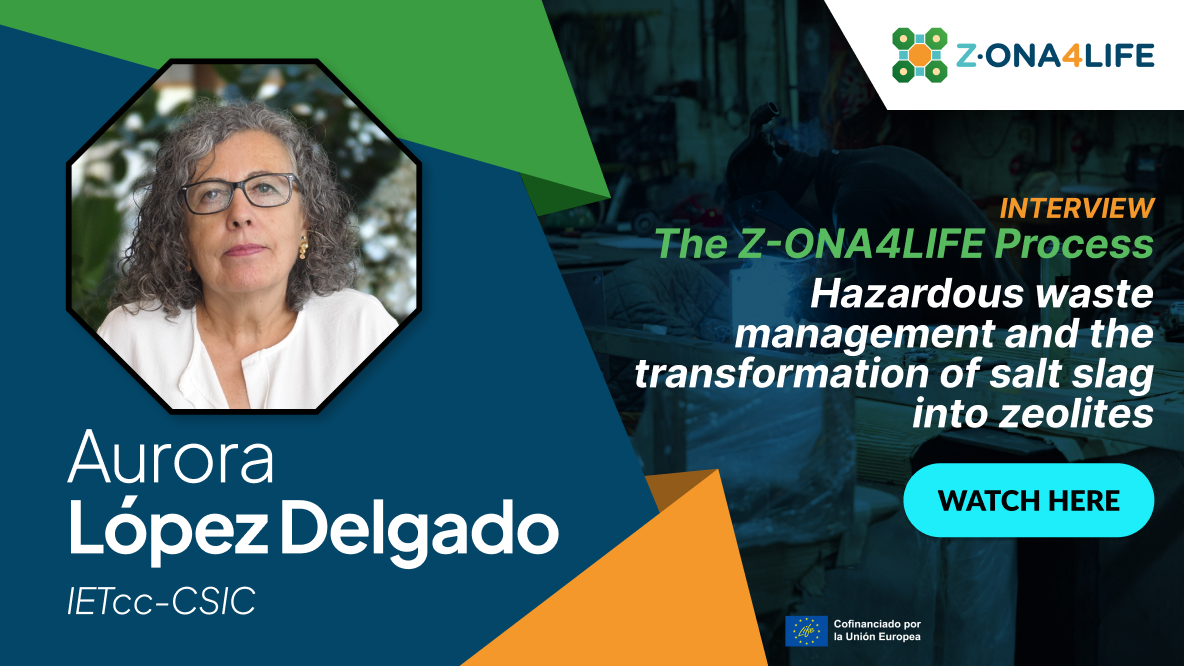
Aurora López-Delgado, Research Scientist at IETcc-CSIC & project coordinator of Z-ONA4LIFE was recently interviewed by Alberto Velazquez from Vocento, in a segment entitled “Buena Huella”, which investigates technological activities dedicated to positive environmental footprints. She discussed how Z-ONA4LIFE is reimagining hazardous waste management and promoting resource reduction through the transformation of aluminium salt slag into zeolites.
Beyond providing the origin of the name of the project (‘Z’ for zeolite, ‘Ona’ for ‘good’ in Basque & ‘4LIFE’ because a zeolite is for life), Aurora highlighted the benefits of reducing the environmental and economic costs of aluminium waste and how the specific framework of the Z-ONA process can bring sustainability to the market.
In order to explain the impact of Z-ONA4LIFE, she contextualised the secondary aluminium industry, describing that when scrap, i.e. aluminium products that have reached the end of their useful life, are melted down to produce new metallic aluminium, a hazardous waste, called salt slag, is generated. The aim of Z-ONA4LIFE is to transform this salt slag into a value-added material such as zeolite.
Aurora introduced a fundamental aspect of zeolites which is their crystalline structure, formed of aluminium and silicon, with a porous formation that allows it to have multidisciplinary applications, including the purification of water and gases and as an important element in the production of concrete.
The aluminium industry produces a significant amount of salt slag and the costs associated with the management of this waste are very high. Z-ONA4LIFE intervenes not only to reduce these costs for aluminium manufacturers, but also to transform the waste into added value materials such as zeolites, promoting recycling and opening up new market lines.
Role of CSIC research in the development of zeolites
“The research carried out at the CSIC has a fundamental relevance or transcendence. They drive the advancement of scientific knowledge and, in addition, promote economic and social development through innovation and technology.”
Aurora adds how this research aims to address critical issues of our time such as raw material scarcity, public health, social inclusion, employment, among others, as well as to design a future that aligns with the EU's circular economy and sustainability strategy.